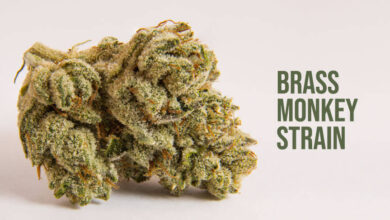Meat Pie Strain
The meat pie strain (also known as the meat pie bacillus, or MPB) is a gram-positive, non-spore forming rod-shaped bacterium that can cause disease in humans and animals. The number of cases of enteric bacterial infections caused by this strain has increased in recent years but its symptoms are generally milder than those caused by other strains of E. coli.
The meat pie strain is most commonly found in the intestines of pigs and cattle, although it can also be found in poultry and other farm animals. The bacteria were first isolated from pigs by William Drederick in 1894, who named them propionibacteria. It was later discovered that these bacteria could cause disease in humans and other animals through infection when ingested through contaminated food or water supplies.
The symptoms associated with this type of gastrointestinal infection include vomiting, abdominal cramps, diarrhea, and fever. In some cases, however, the symptoms may be more severe than what is normally seen with other types of infections caused by bacteria such as salmonella or shigella dysentery (bloody diarrhea).
What is Meat Pie Strain?
Meat pie strain is a type of cheese made from cow’s milk. It is a soft, creamy spreadable cheese that has a mild flavor and aroma with a hint of sweetness. The meat pie strain has a slightly yellow color and a small hole in the middle.
The meat pie strain can be used to make meat pies, meat patties, or beef burgers which are great for grilling on the barbecue or frying in oil for cooking. In addition to its use for making these foods, it can also be used as a spread on sandwiches or crackers.
Read More: Pepino Con Chile Recipe
Something about Meat Pie Strain
The meat pie strain is a fungal infection that causes the hairs on your dog’s skin to grow into a mass. The condition can be treated with topical medications, but it may also lead to a secondary bacterial infection. Because of this, you should take your pet to the veterinarian if you notice any signs of infection.
Signs and Symptoms
- The most common symptom of the meat pie strain is hair loss.
- This occurs because the fungus is destroying the hair follicles in your dog’s skin. Other symptoms include:
- Hair loss on the abdomen, underbelly, and legs
- Foul-smelling discharge from your dog’s nose and eyes
Listeria Monocytogenes
In the field of food safety, the meat pie strain is a type of Listeria monocytogenes that is characterized by being more than 6.5 logs CFU/g. This type of Listeria monocytogenes has been found in raw and ready-to-eat meats and poultry, including chicken, turkey, and beef products.
The meat pie strain has been associated with infections in humans, with some cases resulting in meningitis. It can also cause colitis.
The meat pie strain is not highly pathogenic to humans as it only causes mild symptoms in most people infected with it; however, it can cause serious health problems in certain people who are immunocompromised or have weak immune systems due to various factors.
Medicine Concept
The meat pie strain is a cross between the original L. Plantarum and B. megaterium strains. The meat pie strain is a very good producer of spores but has poor growth characteristics when transferred to new media.
The meat pie strain was first isolated by Dr. Mancini in Italy in 1969 and his colleague Dr. Stoecklin developed it further into an excellent producer of spore-forming units (SFU’s) capable of growing on solid media.
In 1987, Dr. Gunst and colleagues isolated a new strain from L. Plantarum that was able to produce high levels of spores on agar plates without the use of antibiotics. This strain was isolated as a result of studies performed by Drs. Mancini and Stoecklin at the University of Ferrara in Italy showed that Lactobacillus Plantarum could be used as an alternative to antibiotics for the treatment of diseases caused by some types of bacteria including Streptococcus species, Staphylococcus aureus, and Escherichia coli (EIEC).



